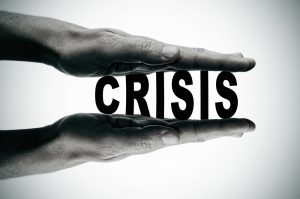 Written by Veronica Turner
Written by Veronica Turner
The digital transformation of therapeutic practices necessitates a skillset tailored to the nuances of virtual environments. As you transcend the traditional office setting, your adeptness in specific competencies becomes critical for maintaining efficacy and client rapport. This involves not only an understanding of online platforms but also a mastery over certain skills that are unique to the delivery of therapy in a digital realm.
As health care professionals venturing into teletherapy, it is imperative to enrich your repertoire with qualifications that facilitate robust and secure virtual patient interactions. The shift from face-to-face consultation to screen-based communication introduces novel dynamics, where proficiency must extend beyond core clinical expertise to encompass areas such as technology management and digital ethics.
With all that in mind, let’s draw back the curtain on some of the lynchpin skills and qualifications that are part and parcel of flourishing in this brave new era for therapy.
Digital Therapy Basics: Essential Technical Proficiencies
Delivering therapy online introduces a distinct set of technical demands that clinicians must confidently manage. Grasping these proficiencies ensures seamless virtual sessions, so don’t skimp on any of the following:
Digital Literacy
A robust understanding of various telehealth platforms is non-negotiable. Familiarity with their features, troubleshooting common issues, and guiding clients through setup are all critical for smooth operation.
For example, the likes of SimplePractice or Doxy.me, which specialize in compliant healthcare communication, need to be in your wheelhouse. Understanding their interfaces, optimizing video and audio settings, and navigating in-built practice management tools is a must.
Cybersecurity Acumen
Safeguarding client confidentiality online requires stringent security protocols. This encompasses encryption methods, secure data storage solutions, and vigilant practice to protect sensitive information from breaches or unauthorized access.
Adopt encryption services like Advanced Encryption Standard (AES) for information transmission, and utilize secure client portals offered by services like Theranest or VSee that adhere to HIPAA standards. Also, continual updating of passwords and awareness of the latest data protection protocols is crucial to deter security threats, and to ensure patient trust.
Hardware Competency
Having the right tools — such as high-quality webcams, microphones, and a stable internet connection — is fundamental to providing an uninterrupted therapeutic experience.
Premium hardware choices include Logitech webcams, known for high-definition video quality, and Blue Yeti microphones whose superior sound pickup capabilities enhance verbal communication clarity. Meanwhile, dependable high-speed internet access minimizes session disruptions – a key factor that’s often overlooked until it becomes problematic.
Mastering these competencies means licensed healthcare professionals can ensure that technology enhances rather than hinders therapeutic outcomes.
Cultivating Online Rapport: Interpersonal Skills in a Virtual Context
Transitioning to online therapy not only requires technical adjustments but also demands an evolution of interpersonal skills. The challenge lies in establishing and nurturing the same depth of therapeutic connection through a screen.
Enhanced Communication Techniques
Adept use of verbal cues, deliberate tone modulation, and strategic pausing can compensate for the absence of physical presence. Additionally, effectively translating non-verbal gestures into words becomes more salient in virtual sessions.
Attunement to Visual and Auditory Subtleties
Acquiring sensitivity to changes in client’s facial expressions or vocal inflections is paramount, as these may be indicative of emotional states that are less discernible online.
Developing a Presence on Screen
Crafting a professional yet comforting digital persona involves considered frame composition during video calls; this includes mindful positioning, appropriate lighting, and an uncluttered background which can foster a contained therapeutic space analogous to an actual clinic room.
Enhancing these relational competencies for the digital domain lets therapists reaffirm their commitment to delivering empathetic care regardless of medium. Advanced adaptability in communication honed through continued practice underpins the effectiveness of online therapy just as much as face-to-face interventions.
What Type of Therapy Might You Specialize In?
Diversifying your practice through specialized online therapy options can significantly enhance the services offered to clients. With a multitude of therapeutic approaches available, obtaining additional certifications and training in specific methodologies allows for tailored online interventions that cater to varied client needs.
Cognitive Behavioral Therapy (CBT)
A certification in CBT equips you to conduct structured, goal-oriented sessions virtually. This modality is well-suited for an online format given its emphasis on didactic elements and active tasks.
Dialectical Behavior Therapy (DBT)
Obtaining specialized training in DBT can be beneficial for managing clients with borderline personality disorder or self-harm behaviors via teletherapy platforms that support secure sharing of worksheets and homework assignments.
Mindfulness-Based Stress Reduction (MBSR)
MBSR qualifications allow therapists to guide clients through mindfulness practices during video sessions, which can be as effective as face-to-face mindfulness training.
Family and Couples Therapy
Postgraduate certificates or diplomas in family and systemic therapy enable clinicians to facilitate relationship-focused therapies online, overcoming geographical barriers between family members.
Investing in continuing education relevant to these focus areas allows you to position yourself competitively within the expanding landscape of remote mental health professionals.
Mastering the Ethical and Legal Landscape of Teletherapy
With teletherapy’s ascent, practitioners must be vigilant in aligning with the intricate ethical and legal tapestries that govern digital therapeutic services. Mastery over these regulatory frameworks is essential for ensuring client welfare, maintaining professional credibility, and upholding the integrity of online practices.
Rigorous Knowledge of Health Privacy Laws
A practitioner should be conversant with laws such as the U.S. Health Insurance Portability and Accountability Act (HIPAA), Canada’s Personal Information Protection and Electronic Documents Act (PIPEDA), or the EU’s General Data Protection Regulation (GDPR). These regulations dictate stringent standards for transmitting health information digitally.
Licensure Across Jurisdictions
Varied state licensure requirements necessitate a clear understanding of rules for providing telehealth across state lines or international boundaries. This may entail obtaining licensure in multiple states or becoming familiar with specific provisions such as PSYPACT—an interstate compact allowing psychologists to practice telepsychology or conduct temporary in-person, face-to-face practice across member states without obtaining additional licenses.
Informed Consent Adaptations
Adapting consent processes to meet telehealth needs involves not only securing agreement on treatment but also educating clients about technology considerations unique to online services. This includes explaining the potential risks and limitations of teletherapy, such as privacy concerns or technical disruptions, and ensuring documentation captures this consent appropriately.
Ethical Boundaries and Best Practices
Teletherapists should be well-versed in guidelines provided by professional bodies such as the American Psychological Association (APA) or National Board for Certified Counselors (NBCC), which offer directives on how to maintain ethical boundaries and therapeutic best practices in a virtual setting.
Continuing Education on Relevant Legislation
Staying abreast of evolving standards requires commitment to continued education focused on legal trends in telehealth. Workshops, certification programs, and professional courses can provide essential updates that inform practice.
Through diligent attention to these comprehensive legal elements, clinicians not only protect their clients but also safeguard their own practice against potential liabilities. Active engagement with ongoing legislative changes further demonstrates a clinician’s dedication to excellence within the digital therapy domain.
Wrapping Up
As we’ve discussed, online therapy demands a sophisticated integration of technical skills, ethical diligence, and specialized knowledge. As clinicians invest in expanding their competencies to meet these criteria, they can deliver high-quality virtual care that resonates with professionalism and upholds the standards of modern telehealth practices.
Author Bio: Veronica Turner is a health and lifestyle writer with over 10 years of experience. She creates compelling content on nutrition, fitness, mental health, and overall wellness.
Please also review AIHCP’s Health Care Certification programs and see if it meets your academic and professional goals. These programs are online and independent study and open to qualified professionals seeking a four year certification.








